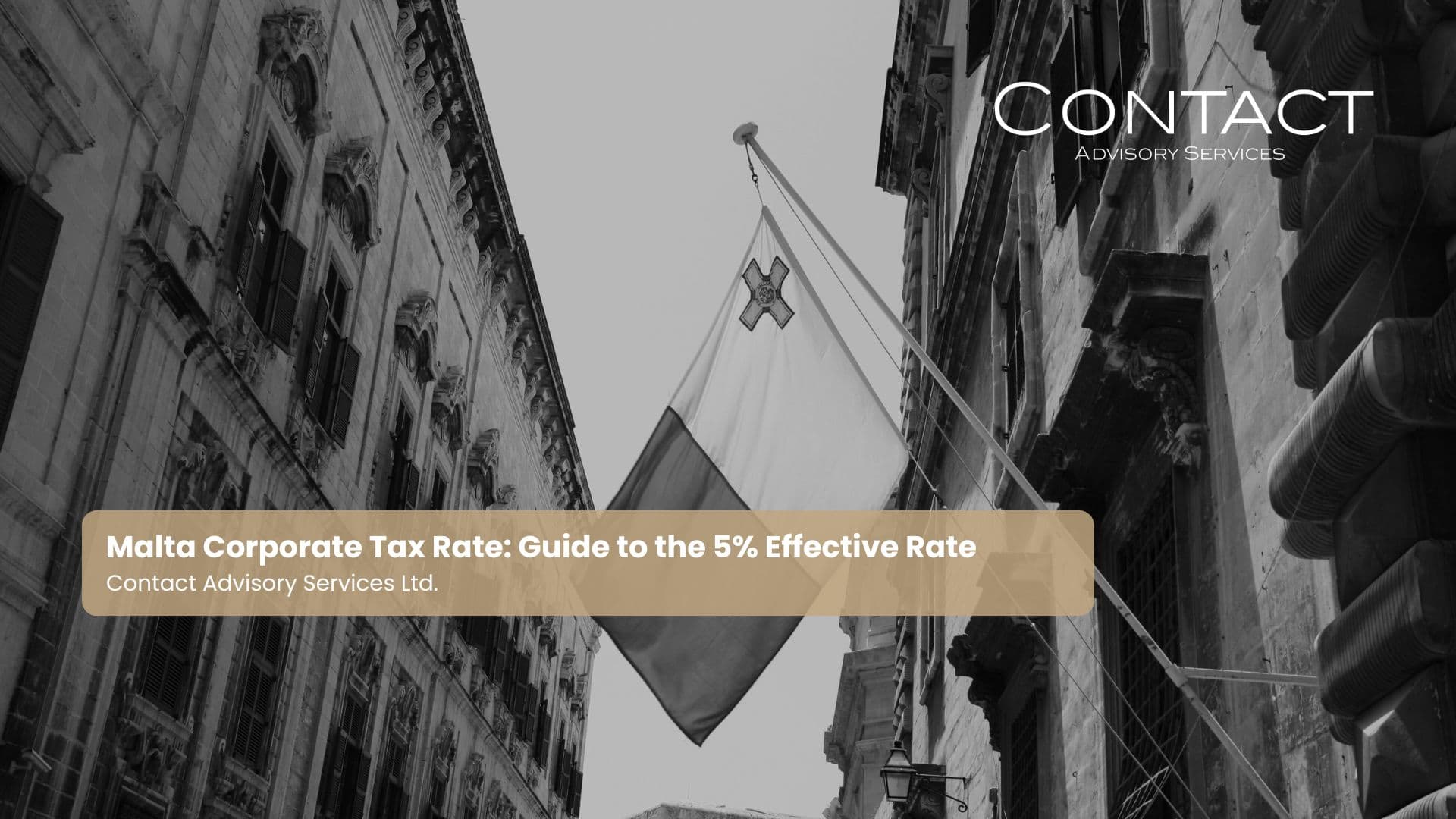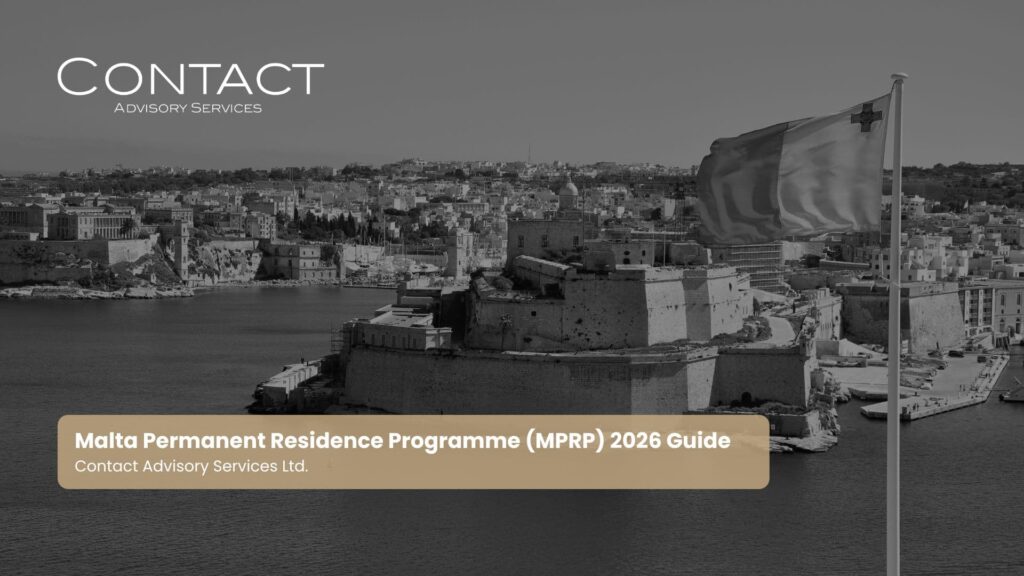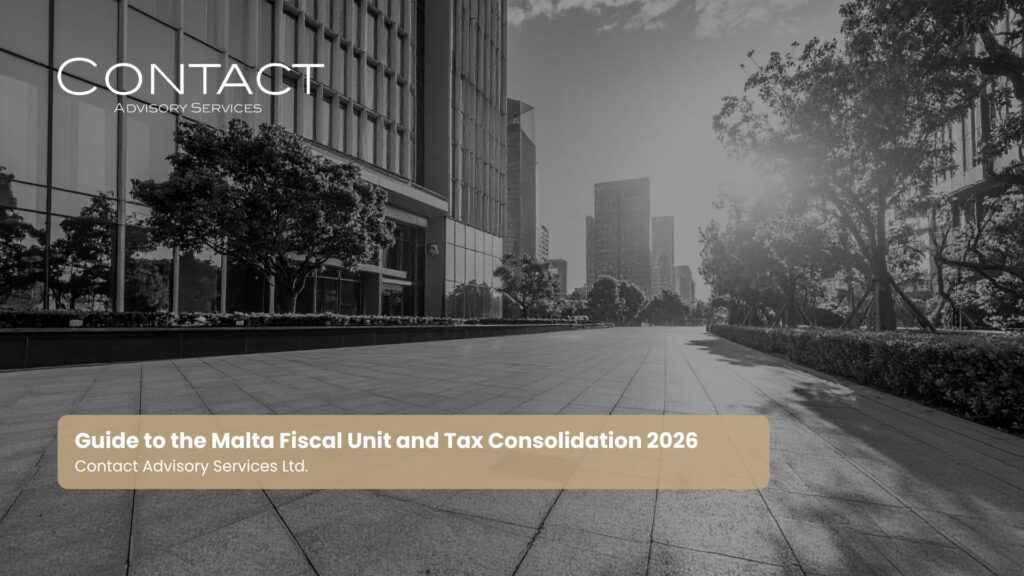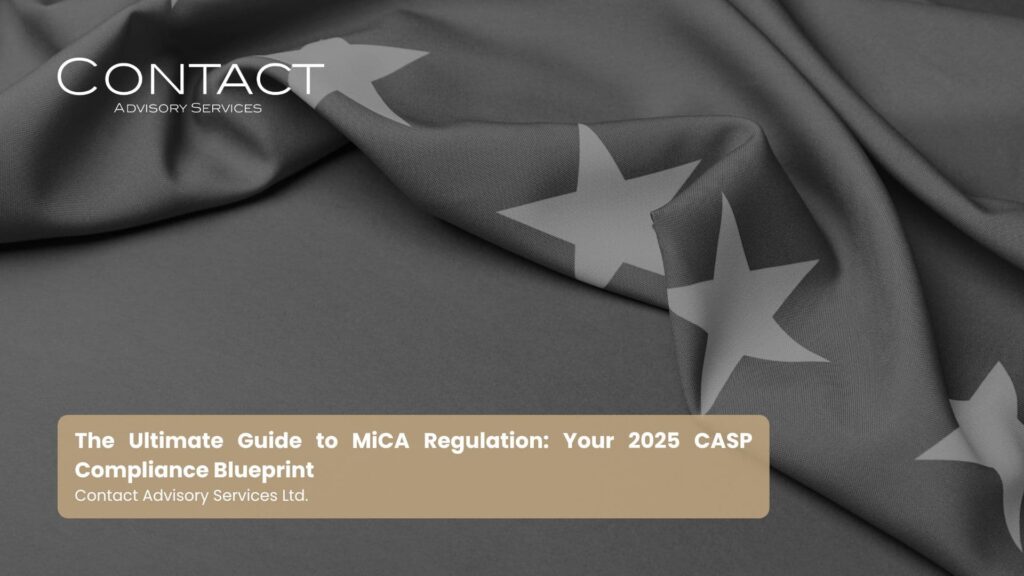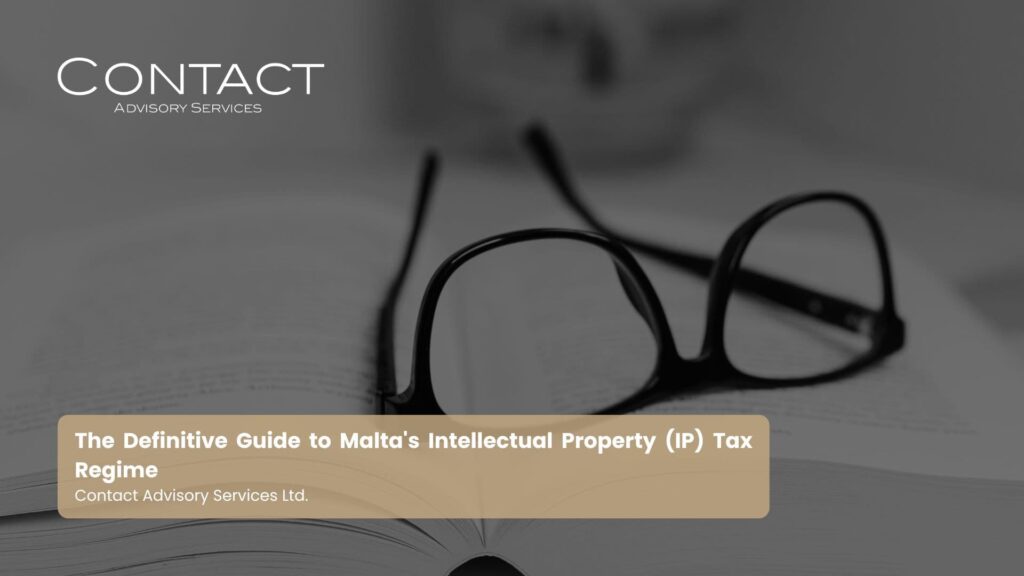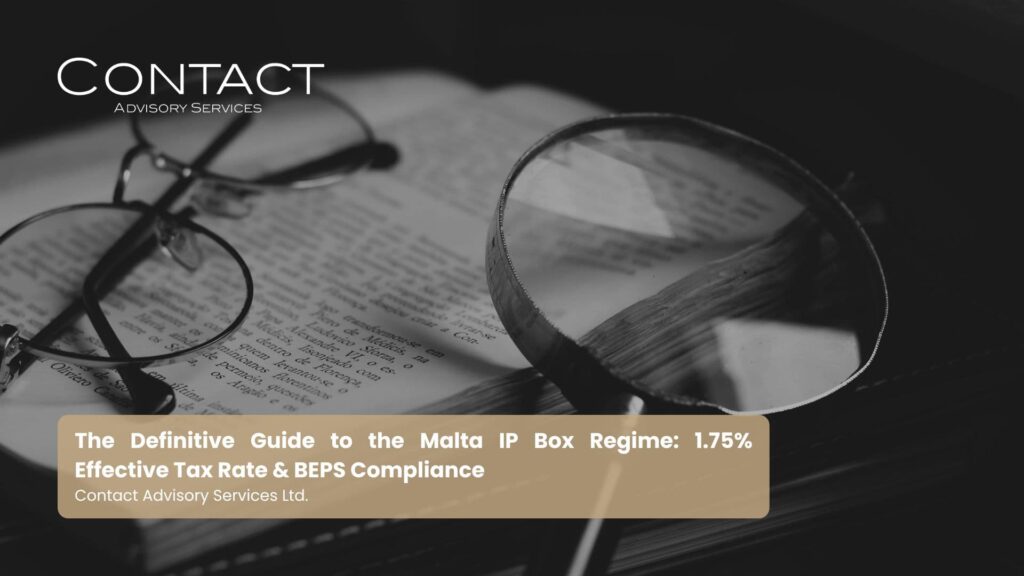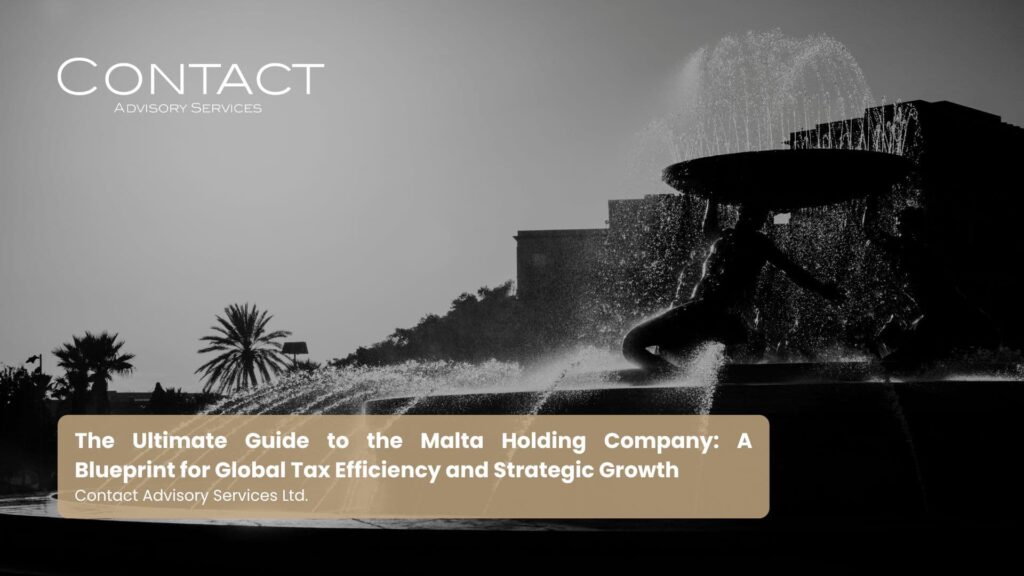Malta Corporate Tax Rate: The Definitive 2025 Guide for International Business
At first glance, Malta’s corporate tax rate of 35% might seem unremarkable, even high compared to other European jurisdictions. This single figure, however, conceals one of the most efficient and attractive corporate tax systems in the world. For savvy international businesses, investors, and entrepreneurs, the headline rate is merely the starting point of a journey that often concludes with an effective tax rate as low as 5%, and in some cases, even 0%. This discrepancy between the nominal and the effective tax rate is not a loophole or a temporary gimmick; it is a long-standing, EU-approved, and fully transparent system designed to attract substantive foreign investment.
Understanding how to navigate from 35% to 5% is the key to unlocking Malta’s full potential as a premier business hub. It involves a deep comprehension of its unique full imputation system, a generous tax refund mechanism for non-resident shareholders, and the highly advantageous participation exemption regime. Misinformation and oversimplification are rampant, leading many to either dismiss Malta based on its headline rate or misunderstand the mechanics required to achieve the advertised benefits.
This definitive guide, brought to you by the experts at Contact Advisory Services Ltd., an MFSA-authorized Company Services Provider, will demystify the Malta corporate tax rate. We will dissect every component of the system, providing clear, actionable insights and step-by-step examples. We will explore the nuances of the tax refund system, the conditions for the participation exemption, and the practical realities of tax compliance in Malta. Our goal is to equip you with the expert knowledge needed to make an informed decision and structure your business for optimal tax efficiency within a stable and reputable EU member state.
What is the Headline Corporate Tax Rate in Malta?
The standard, or headline, corporate income tax rate in Malta is 35%. This single rate applies to the worldwide income of companies that are resident and domiciled in Malta, making it the highest statutory corporate tax rate in the European Union.
The Malta corporate tax rate is set at a flat 35% on taxable profits. This rate applies universally to all companies that are considered tax resident in Malta, regardless of their size or the industry in which they operate. For a company to be considered resident in Malta for tax purposes, it must be incorporated in Malta or its management and control must be exercised from within Malta.
On the surface, this 35% figure can be misleading. Many potential investors compare it to Ireland’s 12.5% or Cyprus’s 12.5% and prematurely conclude that Malta is a high-tax jurisdiction. However, the true appeal and competitiveness of Malta’s tax framework lie not in this headline figure but in the subsequent mechanisms available to shareholders of Maltese companies. The system is intentionally designed so that the tax paid by the company is, in essence, an advance payment on behalf of the final shareholders, who can then claim substantial refunds. This fundamental principle is what transforms Malta from a seemingly high-tax country into one of Europe’s most efficient tax locations for international business. It is therefore critical to look beyond the initial 35% and understand the full picture of the imputation and refund system.
Why is Malta’s Corporate Tax System So Attractive to Foreign Investors?
Malta’s corporate tax system is exceptionally attractive to foreign investors due to its full imputation and tax refund system. This unique, EU-approved structure allows non-resident shareholders to claim back a significant portion of the 35% tax paid by the company, drastically lowering the overall effective tax burden.
The core attraction of the corporate tax system in Malta is its efficiency and transparency. Unlike jurisdictions that offer low flat rates, Malta’s model is built on a robust system that has been in place for decades and has the full backing of the European Union and the OECD. This provides a level of stability and reputability that is paramount for long-term business planning.
The primary reasons for its attractiveness can be broken down into several key pillars:
- The Tax Refund System: This is the cornerstone of Malta’s fiscal appeal. Non-resident individuals and corporate shareholders are entitled to claim a refund of the tax paid by the Maltese company when it distributes dividends. The most common refund is 6/7ths, which reduces the effective tax rate from 35% to just 5%.
- The Full Imputation System: Malta operates a full imputation system of taxation. This means that when a company pays tax on its profits, that tax is credited to the shareholder upon the distribution of a dividend. This completely eliminates the economic double taxation of corporate profits (once at the corporate level and again at the shareholder level), a common issue in many other tax systems.
- The Participation Exemption: For holding companies, Malta offers a 100% participation exemption on dividends and capital gains derived from qualifying “participating holdings.” This essentially means that income from subsidiaries can flow through a Maltese holding company completely tax-free, making it an ideal location for international group structures.
- No Withholding Taxes: Malta does not levy any withholding taxes on outbound payments of dividends, interest, or royalties to non-residents, regardless of whether a double taxation treaty is in place. This ensures that profits can be repatriated from Malta without any further tax leakage.
- Extensive Double Taxation Treaty Network: Malta has an extensive network of over 70 double taxation treaties. These treaties prevent income from being taxed twice and can offer reduced withholding tax rates on payments made to the Maltese company from other countries.
- EU Membership and Stability: As a full member of the European Union, Malta offers a stable political and economic environment. Companies established in Malta gain full access to the EU single market and can benefit from EU directives, such as the Parent-Subsidiary Directive and the Interest and Royalties Directive.
This combination of features creates a powerful, flexible, and fully compliant framework that caters to a wide range of international business activities, from active trading and holding investments to intellectual property management and financing.
How Does Malta’s Full Imputation System Work?
Malta’s full imputation system ensures that company profits are not taxed twice. The 35% tax paid by the company is imputed, or credited, to the shareholder when a dividend is distributed, and the shareholder can use this credit to offset their own tax liability on that dividend income.
The concept of a full imputation system is fundamental to understanding the Malta corporate tax rate. In many classical tax systems, a company earns a profit and pays corporate tax on it. When the company then distributes the remaining profit as a dividend to a shareholder, the shareholder must pay income tax on that dividend. This is known as economic double taxation.
Malta completely eliminates this. Here’s a simplified breakdown of the process:
- Company Earns Profit: A Maltese company generates a profit of, for example, $100,000.
- Company Pays Tax: The company pays corporate tax at the standard rate of 35%. So, it pays $35,000 in tax to the Maltese tax authorities.
- Profit Available for Distribution: The remaining profit after tax is $65,000. The company decides to distribute this entire amount as a dividend to its shareholder.
- Shareholder Receives Dividend and Tax Credit: The shareholder receives the net dividend of $65,000. However, for tax purposes, the shareholder is deemed to have received the gross dividend of $100,000, along with a tax credit of $35,000 (the tax already paid by the company).
- Shareholder’s Tax Calculation: The shareholder’s income is calculated based on the gross dividend of $100,000. If the shareholder’s personal tax rate is, for instance, also 35%, their tax liability would be $35,000. They can then use the $35,000 tax credit to fully offset this liability, resulting in no further tax being due.
This system ensures that the total tax paid on the profit is only 35%, paid once at the corporate level. While this is straightforward for resident shareholders, the real power of this system is unleashed when combined with the tax refund mechanism for non-resident shareholders, which we will explore next.
What is the Malta Tax Refund System and Who is Eligible?
The Malta tax refund system allows shareholders of a Maltese company who are not resident in Malta to claim a refund of the tax paid by the company on the profits used to pay them a dividend. This system is the primary mechanism that reduces the effective corporate tax rate.
The tax refund system is the linchpin of Malta’s competitive tax offering. It is a legally established mechanism, not a discretionary concession, providing certainty and predictability for investors. When a Maltese company distributes a dividend, its shareholders become entitled to claim a refund of the Malta tax paid by that company.
Who is Eligible for a Tax Refund?
The primary eligibility criterion is the tax residence status of the shareholder. To be eligible to claim a tax refund, the shareholder must not be resident for tax purposes in Malta. This includes both:
- Corporate shareholders: A foreign company that owns shares in a Maltese company.
- Individual shareholders: An individual who is not ordinarily resident and domiciled in Malta.
Essentially, the system is designed specifically to attract foreign capital and international business. Shareholders who are tax resident in Malta are not eligible for these refunds; they are taxed under the standard imputation system described earlier. This clear distinction ensures the system benefits international operations as intended. The refund is paid directly to the shareholder, not the company, and is typically processed efficiently by the Maltese tax authorities within a few weeks of a valid application being filed.
What are the Different Tax Refund Rates Available?
The Malta tax refund system offers several rates depending on the nature of the underlying income, with the most common being the 6/7ths refund for trading income. Other available rates include a 5/7ths refund, a 2/3rds refund, and a 100% refund in specific circumstances.
The size of the tax refund a shareholder can claim depends on the source and nature of the profits being distributed by the Maltese company. This targeted approach allows the system to be flexible and cater to different types of business activities. Below, we detail each available refund.
When Does the 6/7ths Tax Refund Apply?
The 6/7ths tax refund is the most widely used and applies to dividends distributed from profits derived from active trading activities. This refund results in a final effective tax rate of just 5% on those profits.
This is the refund that generates the most interest in Malta’s tax system. It applies to profits that arise from trading activities, such as manufacturing, selling goods or services, software development, iGaming operations, and other active business ventures. It also applies to passive income that does not fall under the specific categories qualifying for the 5/7ths refund.
The calculation is straightforward:
- Company Profit: $100,000
- Corporate Tax Paid @ 35%: $35,000
- Dividend Distributed: $65,000
- Shareholder’s Refund: 6/7ths of the tax paid ($35,000) = $30,000
- Net Tax Paid: $35,000 (paid by company) – $30,000 (refund to shareholder) = $5,000
- Effective Tax Rate: $5,000 / $100,000 = 5%
This incredibly low effective rate on active business income is what makes Malta a premier jurisdiction for international trading companies.
When is the 5/7ths Tax Refund Applicable?
A 5/7ths tax refund is applicable on dividends distributed from profits derived from passive interest or royalties. This results in a higher effective tax rate of 10% on such income.
The system makes a distinction between active trading income and certain types of passive income. When the profits distributed as a dividend consist of passive interest (e.g., from loans) or royalties (e.g., from licensing intellectual property), the shareholder is entitled to a 5/7ths refund.
Let’s illustrate with a calculation:
- Company Profit from Royalties: $100,000
- Corporate Tax Paid @ 35%: $35,000
- Dividend Distributed: $65,000
- Shareholder’s Refund: 5/7ths of the tax paid ($35,000) = $25,000
- Net Tax Paid: $35,000 – $25,000 = $10,000
- Effective Tax Rate: $10,000 / $100,000 = 10%
While 10% is higher than the 5% on trading income, it remains a very competitive rate for holding intellectual property or for intra-group financing activities, especially when combined with Malta’s absence of withholding taxes.
Under What Circumstances is a 2/3rds Refund Claimed?
A 2/3rds tax refund can be claimed when the dividend is paid out of foreign-sourced income on which the Maltese company has claimed double taxation relief. The final effective tax rate in this scenario varies depending on the type and amount of relief claimed.
This refund is slightly more complex and is relevant for Maltese companies that receive income from foreign countries where that income has already been subject to tax. Malta offers several forms of double taxation relief to prevent income from being taxed twice. These include:
- Treaty Relief: Relief granted under a Double Taxation Agreement (DTA).
- Unilateral Relief: Relief granted for tax paid in a country with which Malta does not have a DTA.
- Flat Rate Foreign Tax Credit (FRFTC): A notional tax credit of 25% of the foreign income, available to Maltese companies in certain circumstances.
When a company claims one of these reliefs, the tax it ultimately pays in Malta is reduced. The shareholder is then entitled to a refund of 2/3rds of the Maltese tax paid. Because the initial tax paid can vary, the final effective tax rate is not fixed. However, this mechanism ensures the system remains efficient even when dealing with complex international income streams.
Can a 100% Tax Refund Be Claimed?
Yes, a 100% tax refund of the tax paid in Malta can be claimed in specific situations. This typically applies to dividends distributed from profits that fall under Malta’s participation exemption regime but where the company has opted to pay the 35% tax instead of claiming the exemption upfront.
This scenario is linked to another powerful feature of the Malta company tax system: the Participation Exemption, which we will cover in detail in the next section. In essence, profits from a “participating holding” (e.g., a subsidiary) are exempt from tax in Malta.
However, a company may sometimes choose, for various strategic reasons, not to claim this exemption at the corporate level. It might opt to pay the 35% tax on the qualifying dividend income it receives. If it does so, when it subsequently distributes that same profit to its own shareholders, those shareholders can then claim a 100% refund of the Malta tax paid. This results in a 0% effective tax rate, achieving the same outcome as the participation exemption but through a different procedural route. This provides valuable flexibility in corporate structuring and tax planning.
Summary of Malta Tax Refunds
| Type of Income | Shareholder Refund | Effective Tax Rate |
| Active Trading Income | 6/7ths of Malta tax | 5% |
| Passive Interest & Royalties | 5/7ths of Malta tax | 10% |
| Foreign Income with Double Tax Relief | 2/3rds of Malta tax | Varies |
| Profits from a Participating Holding (if taxed) | 100% of Malta tax | 0% |
What is the Participation Exemption in Malta?
Malta’s participation exemption is a tax relief that provides a 100% exemption from corporate tax on qualifying dividends and capital gains derived by a Maltese company from its “participating holding” in another entity. This makes Malta a premier jurisdiction for holding companies.
The participation exemption is a cornerstone of Malta’s attractiveness for international group structures. Its purpose is to eliminate double taxation on the profits of subsidiaries. If a subsidiary has already been taxed on its profits in its home country, Malta will not tax those same profits again when they are distributed as a dividend to the Maltese parent company. Similarly, if the Maltese parent company sells its shares in the subsidiary, any capital gain arising from that sale is also exempt from tax in Malta.
This exemption is not automatic; it applies only to income and gains derived from a “participating holding.” A Maltese company must therefore ensure that its shareholding in a subsidiary meets the required criteria to benefit from this powerful tax exemption.
What Qualifies as a “Participating Holding”?
A shareholding qualifies as a “participating holding” if the Maltese company holds at least 5% of the equity shares in the subsidiary. If this primary condition is not met, several alternative criteria can be satisfied instead, offering significant flexibility.
For a holding in a company (resident or non-resident) to be classified as a participating holding, at least one of the following conditions must be met. The Maltese company must hold:
- A) At least 5% of the equity shares in the subsidiary company. This is the most common and straightforward condition. ‘Equity shares’ are defined as shares that entitle the holder to at least two of the following three rights: the right to vote, the right to profits available for distribution, and the right to assets available for distribution on a winding-up.
OR
- B) An investment of at least €1,164,000 (or the equivalent in another currency) in the subsidiary, held for an uninterrupted period of at least 183 days.
OR
- C) The right to appoint a director to the board of the subsidiary company.
OR
- D) The right of first refusal to purchase the remaining shares of the subsidiary in the event of their disposal, redemption, or cancellation.
OR
- E) The option to purchase the remaining shares of the subsidiary company.
OR
- F) The shareholding is for the furtherance of the Maltese company’s own business, and the holding is not held as trading stock for the purpose of a trade.
The breadth of these conditions makes the participation exemption accessible to a wide range of corporate structures, not just those with significant majority shareholdings.
What are the Anti-Abuse Provisions for the Participation Exemption?
To prevent abuse, when a Maltese company receives a dividend from a non-EU participating holding, it must satisfy one of three additional conditions. These conditions ensure the subsidiary is a genuine business entity and not just a vehicle for channeling untaxed passive income.
To ensure the participation exemption is not used to shield profits from jurisdictions with no or very low taxation, certain anti-abuse provisions apply. These provisions are triggered when the participating holding is in a company that is not resident in the European Union. In such cases, the holding must satisfy one of the following three tests:
- Subject to Tax Test: The subsidiary company must be resident or incorporated in a country or territory that is part of the European Union.
OR
- The 5% Foreign Tax Test: The subsidiary company must be subject to any foreign tax at a rate of at least 15%.
OR
- The Passive Income Test: The subsidiary company must not have more than 50% of its income derived from passive interest or royalties.
If none of these three conditions are met, there is a final backstop: the investment in the non-EU subsidiary must not have been structured as a scheme with the main purpose of avoiding Maltese tax.
These conditions ensure that the participation exemption regime aligns with international tax standards, such as the OECD’s Base Erosion and Profit Shifting (BEPS) framework, reinforcing Malta’s status as a reputable and transparent financial centre.
How is the Effective 5% Corporate Tax Rate Calculated in Practice?
In practice, the effective 5% rate is achieved through a clear, two-step process. First, the Maltese company pays the standard 35% corporate tax on its profits. Second, upon dividend distribution, the non-resident shareholder files an application and receives a 6/7ths refund of the tax paid.
Understanding the practical cash flow and process is crucial for any business planning to operate in Malta. It’s not a system where the company simply pays 5% tax from the outset. The full 35% must be paid first, and the refund is a subsequent step.
Let’s walk through a detailed, practical example:
- Scenario: A Malta Trading Company, wholly owned by a non-resident Holding Company.
- Financial Year Profit: €200,000
Step 1: Corporate Tax Filing and Payment
The Maltese Trading Company prepares its annual financial statements and tax computation.
- Taxable Profit: €200,000
- Corporate Tax Liability @ 35%: €70,000
The company files its tax return and pays the €70,000 tax to the Malta Commissioner for Revenue.
Step 2: Dividend Distribution
The company now has post-tax profits available for distribution.
- Profit after tax: €200,000 – €70,000 = €130,000
The company’s board of directors resolves to distribute the full €130,000 as a dividend to its shareholder, the non-resident Holding Company.
Step 3: Tax Refund Application
The shareholder (Holding Company) is now entitled to claim a tax refund. As the income is from active trading, the 6/7ths refund applies.
- Tax paid by the Maltese company: €70,000
- Refund claimable: 6/7 x €70,000 = €60,000
A tax refund application form, along with supporting documentation (dividend warrant, shareholder details), is filed with the tax authorities on behalf of the shareholder. This is typically handled by an authorized tax advisor, like Contact Advisory Services Ltd.
Step 4: Receiving the Refund
The Maltese tax authorities process the application efficiently. Within a few weeks, the €60,000 refund is paid directly into the bank account designated by the shareholder.
Final Outcome:
- Total Tax Paid by Company: €70,000
- Total Refund Received by Shareholder: €60,000
- Net Tax Leakage on the Group’s Profit: €70,000 – €60,000 = €10,000
- Effective Corporate Tax Rate: (€10,000 / €200,000) * 100 = 5%
This step-by-step process demonstrates the clear and reliable mechanics behind achieving the low effective Malta corporate tax rate.
What is the Process for Claiming a Tax Refund in Malta?
The process for claiming a tax refund is standardized and efficient, involving the company’s tax payment, dividend distribution, and the submission of a prescribed refund application form by the shareholder. The process is typically managed by a local tax representative to ensure accuracy and speed.
The efficiency of the refund process is a key advantage of the Maltese system. Delays in receiving funds can create cash flow issues, but Malta’s tax authorities are known for their reliability in this regard. The process generally follows these steps:
- Company Tax Return Submission: The Maltese company prepares and submits its annual income tax return.
- Payment of Tax: The 35% corporate tax liability is paid by the company on the due date.
- Dividend Distribution: The company formally declares and distributes a dividend to its shareholders from the taxed profits.
- Preparation of Refund Claim Form: A specific tax refund application form is completed. This form details the dividend paid, the tax paid by the company attributable to that dividend, and the details of the shareholder claiming the refund.
- Submission of Documentation: The claim form is submitted to the International & Corporate Tax Unit of the Malta Commissioner for Revenue. It is accompanied by supporting documents, including a copy of the dividend warrant issued to the shareholder.
- Processing and Payment: The tax authorities review the application. Once verified, the refund is processed and paid directly to the shareholder in their currency of choice. The entire process, from submission to receipt of funds, typically takes between 14 to 21 working days.
Engaging a professional firm like Contact Advisory Services Ltd. is crucial to manage this process seamlessly, ensuring all documentation is correct and submitted on time.
What is the Role of a Two-Tier Company Structure?
A two-tier structure, involving a Maltese holding company and a Maltese operating subsidiary, is often used to streamline the administration of the tax refund process. This structure allows the refund to be paid directly to the Maltese holding company, keeping cash flow within Malta for reinvestment or simplified management.
While a single Maltese company owned by a non-resident is perfectly viable, a common and highly effective structure involves two Maltese companies:
- Malta Operating Company (“OpCo”): This company conducts the primary trading or business activities. It earns the profit and pays the 35% tax.
- Malta Holding Company (“HoldCo”): This company’s sole purpose is to own the shares of the OpCo. The HoldCo itself is owned by the ultimate non-resident shareholders.
Here’s how this structure optimizes the process:
- The OpCo pays the 35% tax and distributes a dividend to its shareholder, the HoldCo.
- Because the HoldCo is a Maltese company, it is technically not entitled to the tax refund. However, the system allows the HoldCo to also distribute a dividend to its own non-resident shareholders.
- When the HoldCo distributes this dividend, its non-resident shareholders are then entitled to claim the tax refund based on the tax originally paid by the OpCo.
The Key Advantage: Malta’s laws allow the non-resident shareholder to mandate that their tax refund be paid directly to the HoldCo’s bank account in Malta. This means the refunded cash (the €60,000 in our previous example) flows directly back into a Maltese company, where it can be immediately used for reinvestment, paying expenses, or making further distributions. This avoids the administrative step of receiving funds abroad and then having to re-inject them into Malta. This structure is a cornerstone of efficient corporate planning and is a key part of our services in Malta company formation.
Are There Any Other Corporate Taxes in Malta?
Beyond the 35% corporate income tax, Malta has a very clean tax system with no hidden corporate taxes. Crucially, there are no withholding taxes on outbound dividends, interest, or royalties, and no capital, net worth, or wealth taxes for companies.
A low headline tax rate can sometimes be undermined by a web of other taxes. Malta’s system is notable for its transparency and lack of such “stealth taxes.”
- Withholding Tax: As mentioned, Malta does not impose any withholding tax on dividends, interest, or royalties paid to non-residents. This is a significant advantage, ensuring profits can be repatriated without any additional tax leakage in Malta.
- Capital Gains Tax: Capital gains are generally aggregated with a company’s other income and taxed at the standard 35% rate. However, gains from the disposal of shares under the participation exemption are 100% tax-exempt. Furthermore, Malta does not tax capital gains realised by non-residents on the disposal of shares in a Maltese company, provided the company’s assets do not primarily consist of immovable property in Malta.
- Stamp Duty: Stamp duty is applicable on certain transactions, most notably on the transfer of shares in Maltese companies (typically at 2% or 5% depending on the company’s assets) and on the transfer of immovable property.
- Value Added Tax (VAT): As an EU member, Malta has a VAT system. The standard rate is 18%, with reduced rates for certain goods and services. This is a consumption tax and generally not a direct cost to most businesses, as they can reclaim the VAT they incur.
The absence of major ancillary corporate taxes makes the Malta corporate tax rate system predictable and easy to model for financial planning.
What is the Notional Interest Deduction (NID) Regime?
The Notional Interest Deduction (NID) is an innovative tax incentive that allows Maltese companies to deduct a notional interest amount based on their equity capital. This deduction reduces the company’s taxable income, providing an alternative to the tax refund system for companies that prefer to retain profits rather than distribute them.
Introduced in 2018, the NID regime provides companies with an alternative way to achieve tax efficiency. It is designed to create a level playing field between financing through debt (where interest is deductible) and financing through equity (which traditionally offers no deduction).
Here’s how it works:
- A company can claim a deduction against its chargeable income for a “notional” interest expense on its risk capital (e.g., share capital, share premium, retained earnings).
- The NID rate is calculated as the risk-free rate (based on Malta Government Stocks) plus a premium of 5%.
- The total deduction cannot exceed 90% of the company’s chargeable income before the deduction.
Example:
A company has €1,000,000 in equity and generates a profit of €150,000. Assuming the NID rate is 6%, it can claim a notional interest deduction of €60,000 (€1,000,000 * 6%).
- Taxable income is reduced from €150,000 to €90,000 (€150,000 – €60,000).
- Tax @ 35% on €90,000 = €31,500.
- This results in an effective tax rate of 21% (€31,500 / €150,000), without needing to distribute a dividend.
The NID is particularly useful for businesses that need to retain capital for growth and reinvestment, as it provides an immediate tax reduction at the company level without requiring the dividend distribution and refund process.
How Does Malta Comply with International Tax Standards (BEPS, ATAD)?
Malta is fully committed to international tax transparency and is compliant with all OECD BEPS initiatives and EU Anti-Tax Avoidance Directives (ATAD). It has implemented rules on interest limitation, controlled foreign companies (CFCs), exit taxation, and hybrid mismatches, ensuring its tax system is robust and reputable.
In an era of increased global scrutiny on tax matters, it is vital to operate from a jurisdiction that is cooperative and compliant. Malta has a strong track record in this regard. It is not a “tax haven” in the pejorative sense; it is a well-regulated financial centre that has adapted its legal framework to meet the highest international standards.
- BEPS Compliance: Malta is an active member of the OECD/G20 Inclusive Framework on BEPS and has implemented the four minimum standards, including measures against treaty abuse and country-by-country reporting.
- ATAD Implementation: Malta has fully transposed the EU’s ATAD I and ATAD II into its domestic law. This includes:
- Interest Limitation Rules: Limiting the deductibility of net borrowing costs to 30% of EBITDA.
- Controlled Foreign Company (CFC) Rules: Taxing the income of low-taxed foreign subsidiaries under certain conditions.
- Exit Taxation Rules: Taxing unrealised capital gains when a company migrates its residence or assets out of Malta.
- Hybrid Mismatch Rules: Neutralising the tax effects of mismatches arising from different tax treatments of an entity or instrument between countries.
This commitment to compliance provides businesses operating in Malta with the assurance that their structure is built on a solid, sustainable, and reputable legal foundation. As your authorized advisors, we at Contact Advisory Services Ltd. ensure that every structure we establish is fully compliant with these evolving international standards.
What are the First Steps to Setting Up a Company in Malta?
The first steps to setting up a company in Malta involve choosing the appropriate company type (typically a private limited liability company), preparing the Memorandum and Articles of Association, and submitting the required documentation to the Malta Business Registry (MBR). The process is efficient and can be completed remotely with the help of a licensed corporate service provider.
The process of company incorporation in Malta is based on long-standing company law and is designed to be straightforward and efficient.
- Initial Consultation & Due Diligence: The process begins with a consultation to understand your business objectives. As a licensed firm, we conduct mandatory Know-Your-Customer (KYC) and due diligence checks on all proposed directors and shareholders.
- Company Name Reservation: A unique name for the company is chosen and reserved with the Malta Business Registry.
- Drafting of M&A: The Memorandum and Articles of Association are drafted. This is the constitutional document of the company, outlining its objects, share capital, regulations, and the details of its subscribers, directors, and company secretary.
- Deposit of Share Capital: The minimum share capital (€1,165 for a private company, with at least 20% paid up) is deposited into a bank account in the company’s name.
- Submission to MBR: The signed M&A and evidence of the share capital deposit are submitted to the Malta Business Registry.
- Incorporation: Once the MBR is satisfied that all documentation is in order, it issues the Certificate of Incorporation, and the company legally comes into existence, typically within 2-3 working days.
Why Should You Partner with an Authorized Company Services Provider?
Partnering with an MFSA-authorized provider like Contact Advisory Services Ltd. is essential for navigating Malta’s regulatory landscape. We ensure full compliance, provide expert advice on optimal tax structuring, and handle all administrative burdens, allowing you to focus on your core business.
While the process may seem simple, the nuances of Maltese company law and tax regulations require expert guidance. Attempting to navigate this landscape alone can lead to costly errors, compliance breaches, or a failure to achieve the desired tax efficiency.
As an MFSA (Malta Financial Services Authority) Authorized Company Services Provider, we offer:
- Expertise: Our team possesses deep, specialized knowledge of the Malta corporate tax rate, participation exemption, and all related legislation. We provide authoritative advice tailored to your specific business needs.
- Compliance Assurance: We ensure your company is set up and maintained in full compliance with all local laws and international standards (including anti-money laundering regulations), protecting you from legal and reputational risk.
- Efficiency: We manage the entire incorporation and registration process, interacting with the authorities on your behalf to ensure a swift and smooth setup.
- Comprehensive Services: Beyond incorporation, we provide a full suite of ongoing services, including company secretarial, accounting, tax compliance and advisory, and assistance with opening bank accounts.
- Trustworthiness: Our authorized status signifies that we have met the stringent competence and conduct standards set by Malta’s primary financial regulator. You can be confident that you are partnering with a professional and reputable firm.
Engaging our services is an investment in getting your Maltese structure right from day one, laying a secure and efficient foundation for your international business success.
Frequently Asked Questions (FAQ)
How long does it take to receive a tax refund in Malta?
Once a complete and valid tax refund application is submitted to the Maltese tax authorities, the refund is typically processed and paid out within 14 to 21 working days. This efficiency is a hallmark of the Maltese system.
Is Malta considered a tax haven?
No, Malta is not considered a tax haven. It is a reputable onshore jurisdiction with a fully transparent, EU-compliant tax system that adheres to all OECD standards on tax cooperation and transparency.
Can a Maltese company be owned by an individual?
Yes, a Maltese company can be owned by one or more individuals or corporate bodies from any country. For a private limited company, only one shareholder is required.
Do I need to be in Malta to manage my company?
No, it is not necessary for the directors or shareholders to be resident in Malta. A Maltese company can be fully managed and controlled from abroad. However, establishing a degree of local substance (e.g., a Maltese director or office) is often advisable for tax and operational reasons.
What is the minimum share capital for a Maltese company?
The minimum authorized share capital for a private limited liability company in Malta is €1,165. At least 20% of this amount (€233) must be paid up upon incorporation.
Are there tonnage tax rules for shipping companies in Malta?
Yes, Malta has a highly favorable tonnage tax system for shipping organizations. Eligible companies can opt to pay a fixed annual tax based on the net tonnage of their vessels, instead of the standard corporate income tax on profits.
Conclusion: Unlocking Your Global Potential with Malta’s Tax System
The Malta corporate tax rate presents a compelling narrative of strategic fiscal planning. What begins as a 35% headline rate systematically transforms into one of the lowest effective tax rates in Europe—a mere 5% on trading income and 0% on qualifying holding activities. This is not a fleeting advantage but a robust, stable, and EU-endorsed system built on the pillars of full imputation, shareholder tax refunds, and the participation exemption.
We have demonstrated that achieving this efficiency requires a precise understanding of the rules and a methodical approach to structuring and compliance. From navigating the different refund rates and meeting the criteria for a participating holding to leveraging two-tier structures for streamlined cash flow, success lies in expert execution. Malta offers more than just a low tax rate; it provides a compliant, transparent, and stable platform within the EU, complete with access to a vast treaty network and an absence of debilitating withholding taxes.
The complexities, while manageable, underscore the importance of professional guidance. As an MFSA-authorized firm, Contact Advisory Services Ltd. brings the expertise, experience, and authority required to build a compliant and highly efficient Maltese corporate structure tailored to your global ambitions.
Take the next step towards optimizing your international tax strategy. Let our team of experts provide you with a personalized consultation to explore how the Maltese corporate tax system can benefit your business.
Contact us today at info@contact.com.mt to schedule your confidential, no-obligation consultation.
Disclaimer: The information on this website is for general informational purposes only and does not constitute professional advice. We make no representations or warranties regarding its accuracy or completeness. Always contact our team and arrange for a consultation before acting on any information presented here.

